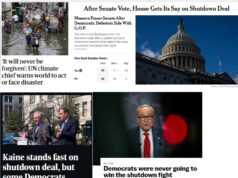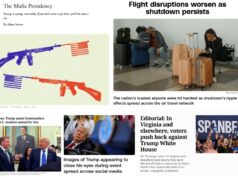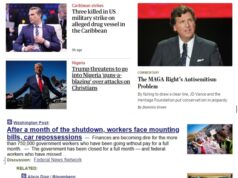By Kellen Squire
Just after my daughter graduated from fourth grade, we took her to the dentist for her bi-annual checkup. After a series of x-rays, cleaning, and small talk with the hygienist, the dentist breezed into the treatment room, resplendent with his festive American flag bow tie. He went over her chart, interrogated her about how much brushing and flossing she did, what her diet was like; the normal stuff the dentist asks you every time you see them, and you say the same thing back to them as you always do (“Yeah, I know, doc- not as much as I should be”).
But then the dentist looked over at my wife and me, and said “Well, guys, now we need to have The Talk.”
I was completely flummoxed by what he meant, which I guess showed on my face, because he simply smiled and said, “I think it’s time to think about braces.”
A pang of adrenaline shot through the pit of my stomach.
Growing up out in the middle of nowhere in farm country had unintentionally set me on a path for good dental hygiene. Milk was plentiful; chocolate and soda were unheard of. Kool-Aid we’d get every once in a while, but it always got watered down with half the suggested sugar to stretch it out. The first time I had a soda was in late grade school, probably third or fourth grade, when my dad took me into town for a “boy’s night out” while my mom was away working. He bought us a Mountain Dew to share. I took one sip and almost spat it out, horribly disappointed and wondering if this was really the mythical beverage talked about at school in hushed and reverent tones, the signature drink of “cool kids” everywhere.
In elementary school, the farm kids got singled out, and once a month the school nurse would bring a tray full of small paper cups into our classrooms, filled with fluoride mouthwash. I’m pretty sure the creators of Red Bull must’ve had to go through the same thing, and set out on a psychotic quest to trick everyone else into having to taste what we did. The city kids, whose water was fluoridated, snickered at us while our teacher counted to thirty and told us to keep swishing.
But “good” is all relative here. While I escaped childhood without any cavities, when I was about the same age my daughter is now, or maybe a titch older, we had to have the same chat with my dentist. I had a bit of an overbite, he said; my bottom teeth were crooked, I had a gap in-between my front top teeth that needed closing, and my wisdom teeth were going to come in early. He also suggested we put on sealants, as I was old enough to tolerate the procedure and already had a set of permanent teeth.
I can see my mom’s face in my head clear as day as he went over that, tight with concern, and I know now why: because she was waiting through the dentist’s spiel with the anticipatory dread of realizing the hammer is about to come down. It’s the same look any parent gets when you realize that what you’re being told you need to do for your child, this incredibly important thing that’ll affect them for the rest of their lives?
It’s never going to happen.
He told my mom how much those things would cost; she and my dad ran the numbers. Getting both braces and sealants weren’t anywhere in the cards, just not possible. In the end, they (quite reasonably) decided to go with sealants, rationalizing that having teeth at all was better than having crooked teeth. But it wasn’t an easy decision, because they knew that “poor teeth… beget not just shame but more poorness: people with bad teeth have a harder time getting jobs and other opportunities. People without jobs are poor.”
That last quote is from an article written by Sarah Smarsh in 2014, titled: “There’s no shame worse than poor teeth in a rich world”. It’s remains one of the few articles I’ve ever read in my life that made me stop in my tracks, staring at my computer screen, eyes wide and jaw agape. Sarah could’ve easily grown up just down the gravel and dirt road from where I did. When she wrote that “Privileged America, ever striving for organic purity, judges harshly the mouths that chew orange Doritos, drink yellow Mountain Dew, breathe with a sawdust rattle, carry a lower lip’s worth of brown chaw, use dirty words and bad grammar,” I had tears in my eyes.
Why? Because she’s right.
My parents’ decision worked marvelously; I’m 33 and haven’t had a cavity. My teeth grew in crooked, but nowhere as near so as the dentist had direly predicted. My very last dental visit, I was told I had the beginning of one in an upper right molar- my very first- but it’s tucked away and isn’t worth going after until it becomes a problem. But even so, the lessons Sarah and I, and tens of millions of other Americans like us, learned when we were young never go away.
One of the easiest ways to trigger a pang of uneasiness in the pit of my stomach is to say, “Alright, we’re going to take a picture! Smile!” Look at pictures of me in relaxing times, like at the beach with the family, or of my wife and I while we were dating, and you’ll see what my wife calls a “mischievous, crooked half-smile”.
But it didn’t come about so I could be extra charming; it came about because I was afraid to smile on camera. Take a look at any of the pictures taken of me when I ran for the Virginia House of Delegates last year, and you can see it- lips tight together, with little to no teeth showing whenever possible. “Stop looking so serious,” I was told, “and smile!” I’d look at official pictures of Tom Perriello or Justin Fairfax or other politicians who grinned widely and unapologetically in their pictures, and sigh jealously.
I never stopped, either, because I’d rather be looked at as being too serious than being looked at as having “poor teeth”. I’d already been getting eyerolls for my accent; I made the mistake of saying “akin to” to a party official over coffee during the early part of my campaign and later found out they mocked it heartily. And that was hardly unique in the flak I got from the folks from my own party- heck, it included a full-blown political assassination attempt to destroy our campaign, because, amongst other things, I was a “dumbass redneck hick” who couldn’t be controlled (pro-tip, never write things in emails you don’t want forwarded). There was just no way I was going to give those folks any photographic assistance to lend credence to their efforts.
Yet one of the best moments of my entire campaign came when I was approached by a gentleman who said while he and I didn’t agree on every issue, he really connected with me- he knew I was like him, down to earth and meant what I said- because he and I both had “f***ed up teeth.”
I really can’t understate the perverse pride I felt in hearing that.
As my daughter’s dentist said the word “braces”, all of that came flooding back to me. Especially when we found out what the price would be- about four month’s mortgage payments, even after insurance, something my wife and I have now that my parents didn’t. So my daughter will be lucky. She won’t have to forever be held accountable by society for the sin of her parents’ financial situation. Her stepmom and I are incredibly blessed; we can pick up extra shifts anytime we like (we’re never overstaffed in the ER), we have insurance, and we make enough money to be able to- even a lot of grimacing and sacrifice along the way- figure out how to make that work with our finances.
But there are hundreds of thousands of others who won’t be as lucky, right here in the Commonwealth of Virginia. It’s why at the Remote Area Medical (RAM) clinics held across Virginia about a dozen times a year, the single most common procedure by far is elective tooth extraction. Folks who live less than a two hour drive from our state capitol, from the urban hub of Northern Virginia, know their prospects of being able to access reliable dental care are so slim they’d rather embody the stereotype of the “toothless hillbilly” than risk the pain and suffering of a lack of dental care.
We can do so much better. While the struggle for Medicare For All is ongoing, right here in Virginia, we should expand Medicaid to cover dental services. We should be giving state income tax breaks to dental professionals, from hygienists to DDSes, of up to 100% if they operate and practice in “dental care deserts”. We should lower bureaucratic red tape to open new practices, as long as it doesn’t impact patient safety. We should be doing what it takes to make this better- not just laud organizations like RAM for doing God’s work- and then look the other way as being “someone else’s problem.”
As Sarah Smarsh sagely notes, “The problem of the 21st century is that of the class line. For the the American Dream to put its money where its mouth is, we need not just laws ensuring, say, universal dental care, but individual awareness of the judgments we pass on people whose teeth – or clothes, waist lines, grocery carts, or limps – represent our worst nightmares.”
We can, we should, and we must work together to make it happen.












![[UPDATED with Jim Ryan’s Letter] In Response to Youngkin’s “Sad, Whiny” Letter to Spanberger About UVA, VA Senate Majority Leader Surovell Says He’s “truly embarrassed for Gov Youngkin…After 4 yrs he has no understanding of basic VA govt structure”](https://bluevirginia.us/wp-content/uploads/2025/11/youngkinspanuva3-100x75.jpg)
